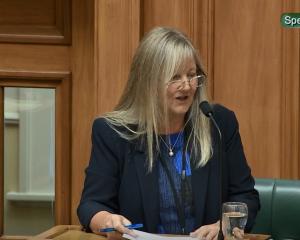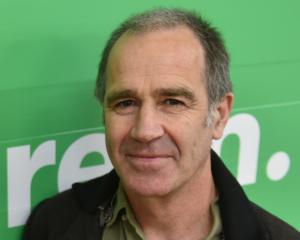The Prime Minister's statement had its genesis in the 1990s following a rewriting of Parliament's rules.
The idea was to start the political year with a wide-ranging debate on a scene-setting document somewhat akin to a state of the nation address.
The Prime Minister is thus required to present a statement on the first sitting day of the new year.
The document is supposed to review ''public affairs'' and outline the Government's legislative and other policy intentions for the next 12 months.
It does so - but only to a limited extent.
The ruling party never gives its opponents advance notice of its intentions until the last moment - and not always then.
Tuesday's statement sought to demonstrate a third-term National Government is still busy-busy and not running out of innovative policies and ideas.
Even so, the content of the statement was largely confined to things already announced or which have been long signalled.
There was no detail - and no dates.
The only nugget of news in this year's missive was a brief mention that Cabinet ministers were first taking a hard look at the billions of dollars spent on helping vulnerable families and children before developing some measures which would be unveiled in the Budget in May and which would address ''material hardship'' - poverty in other words.
The statement has become another means for the governing party to parade its achievements.
It is now a propaganda vehicle filled with unrelenting optimism and self-congratulation.
It is also boring and predictable. Which is just the way John Key likes to play things.
The Prime Minister's statement may consequently be as dull as ditch water.
But it does provide a helicopter view of government activity which goes some way to explaining National's vice-like grip on middle New Zealand.
Mr Key has ensured National provides something for everyone while remaining within tight limits on new spending.
One moment he is tacking to the left and extending free doctors' visits to children under 13, increasing paid parental leave from 14 to 18 weeks and promising those as-yet-unspecified measures to start tackling child poverty in a more determined fashion.
The next moment Mr Key is steering to the right and targeting gangs and gang lifestyles, making every publicly managed prison a ''working prison'' where inmates work, train or study full-time, potentially weakening environmental safeguards in the Resource Management Act, encouraging more petroleum and mineral exploration, selling state houses to non-government entities at discount prices, and opening the door to the development of more charter schools.
This is wide-ranging territory within which to roam.
But the right-leaning items on Mr Key' s agenda - along with the ideologically driven partial asset sales in the previous parliamentary term - have been enough to stop incursions by other political parties on National's right flank and thereby enabling Mr Key to squeeze out Labour and maintain a monopoly on the middle ground.
While taking nothing for granted, Mr Key will be thinking there is nothing particularly special about Andrew Little to suggest he might succeed in putting the squeeze on him when the new Labour leader's four predecessors so obviously failed.
However, it is apparent that Mr Little has given considerable thought as to how he tackles Mr Key.
From day one of his leadership, Mr Little has confronted Mr Key more directly and more pugnaciously, especially in Parliament where his ''cut the crap'' crack at Mr Key has been the most vivid example.
Outside the parliamentary chamber, Mr Little is far more softly spoken. He lets the words he chooses do the talking.
He is having to learn to pick his fights, however.
As this column predicted last week, the ''what John Key knew about Mike Sabin and when'' conspiracy theory has turned out to be an absolute fizzer.
Mr Little should not have fronted for Labour.
That should have been left for an underling.
That lesson may have been heeded.
It was fellow Labour front-bencher Kelvin Davis who put the questions about Mr Sabin to Police Minister Michael Woodhouse in Parliament this week - not Mr Little.
The leader instead led the charge on the blowout in projected construction costs for the yet-to-be-built SkyCity Convention Centre.
This stood to be far more fruitful for Labour, with Grant Robertson arguing strongly that the cost overrun brought together everything that was wrong with the Government: cronyism, incom-petence, and lack of concern about the social harm of gambling.
A big clue as to how Mr Little intends getting the better of Mr Key came in the debate that followed the tabling of the Prime Minister's statement.
Mr Little painted Mr Key as an uninspiring short-term thinker lacking vision who is only willing to do what is easiest and not what is right.
That is one reason why Mr Little raised the question of Maori self-governance on Waitangi Day. He argued the matter would have to be addressed one day - as it had been to some effect in other countries.
However, Mr Key cried ''separatism'' at the first opportunity rather than engage in debate.
For Mr Little, it was a question of whether Mr Key showed real leadership.
On Mr Little's test, Mr Key failed. You could equally argue that Mr Key showed leadership (and political nous) in shutting down a debate the country is not ready for given the antipathy towards even limited Maori representation on local authorities.
Mr Little also took a huge political risk in even raising the matter. But he knows Labour must take risks if it is to beat Mr Key.
Otherwise, he will still be delivering those anodyne Prime Minister's statements for a good while to come.
• John Armstrong is The New Zealand Herald political correspondent.












